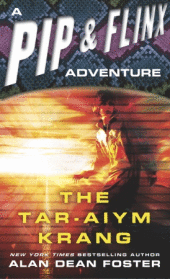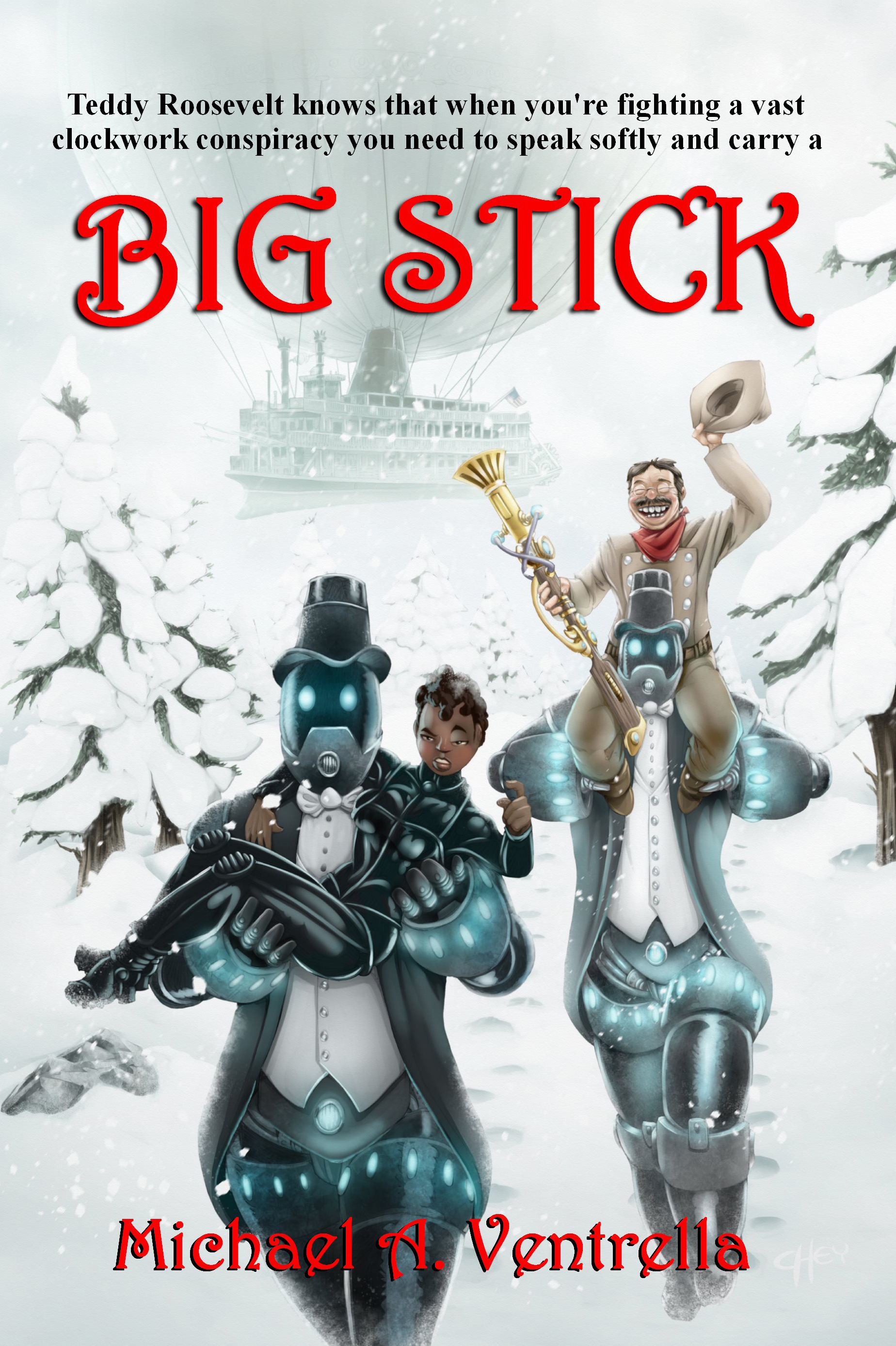I am pleased to today be interviewing Alan Dean Foster, someone whose work I loved long before we ever met. Alan was one of the first subscribers to my magazine Animato, published in the 80s and early 90s, and later worked Animato into one of his novels (Quozl). I was quite honored!

Besides sharing the name “Alan” (mine is in the middle), Alan Dean Foster is also a political science undergraduate, but there we split; Alan went on to get a Master in Fine Arts in Cinema at UCLA. Behind all that was, of course, a love of writing, and after some short stories were published, his first novel THE TAR-AIYM KRANG was published in 1972, and many more soon followed. Among his series include 14 novels in the “Pip and Flinx” series, the Commonwealth novels, and (my favorite) The Spellsinger novels.
His Star Trek “Log” books kept fans entranced between the end of the animated series and the start of the movies, and his Star Wars novels include the hugely popular SPLINTER OF THE MIND’S EYE.
He has written the movie novelizations for (among others) Alien, Clash of the Titans, Outland, Starman, Alien Nation, and the most recent Star Trek movie.
Alan lives in Arizona with a beautiful wife and a beautiful house (well, I’ve seen pictures anyway). They love to travel the world.
I really shouldn’t have to go into too much detail about Alan; if you don’t know who he is, you probably wouldn’t be reading this blog!
His web page is www.alandeanfoster.com.
MICHAEL A. VENTRELLA: Alan, your first published work was with the Pip and Flinx series (unless I am mistaken) in the 1970s. How has publishing changed since then for beginning writers trying to break into the field?
ALAN DEAN FOSTER: First publications were a couple of short stories in 1971. I don’t believe it’s that much more difficult for new writers trying to break in, but the advances have shrunk and there’s more competition, thanks to the use of computers. More importantly, and especially for SF, the short story market has contracted enormously even from the ’70’s. So writers are almost forced to break in with an entire novel, which is obviously more difficult.
VENTRELLA: Too many starting authors get frustrated with trying to obtain an agent and/or publisher and turn to self-publishing as a way to get noticed. Is this wise, in your opinion?
FOSTER: Fifteen years ago I would have said no. But the line between “real” publishing and self-publishing grows more blurred every day. Now you have sites like Scribd that allow writers…and would-be writers…not only to self-published, but to do so easily, cheaply, and still get paid for their production. No one knows what the future will bring for this new technology, but it’s very exciting for published as well as newbie authors.
VENTRELLA: Similarly, do you advise starting authors to go with small but reputable publishers in order to gain some attention first before approaching agents and editors?
FOSTER: Not in the case of writing. Always start at the top and work down. If your work is good, why not have the best markets and the best people see it first?
VENTRELLA: Do you personally plan out series in advance or concentrate on each book on its own? Do agents and publishers want to know that a beginning author has ideas for sequels or a series?
FOSTER: It depends. With the Commonwealth and Flinx & Pip books I had no idea it was going to turn into a series…much less one that is still on-going after thirty-seven years. It just kind of growed. But with a trilogy, the entire story arc is indeed planned from the beginning. And yes, publishers are always interested in knowing if a new author has ideas for further stories in the same setting. 
VENTRELLA: What really pushed your career was being approached by George Lucas for the Star Wars novelization. How did that come about?
FOSTER: Actually, my career got its first real push from the publication of a book called ICERIGGER, which went through several printings right away and spawned two eventual sequels. As to the SW novelization, my agent was contacted by Lucas’s representatives. I met with George, who though somewhat busy gave me a fair amount of his time, and all went well from then on.
VENTRELLA: You’ve done dozens of movie novelizations. Do you have your agent approach Hollywood agents for these or do they call you these days?
FOSTER: They contact me. Quite unintentionally, I’ve developed something of a reputation for them.
VENTRELLA: What’s the biggest mistake you have made professionally?
FOSTER: I’m not very good at promotion. I’m much better and more comfortable praising someone else’s work than my own. And I probably am too polite when it comes to matters that affect publication of my work. But it’s just the way I am. My wife says I have no taste…that I like everybody.
VENTRELLA: When people look back on your work, what would you like them to remember you for? What are you particularly proud of?
FOSTER: That I never sacrificed story for the sake of “art”, and that I managed to slip in one or two thoughts about the nature and future of humankind without lecturing the reader or otherwise belaboring the audience.
Filed under: writing | Tagged: Alan Dean Foster, novelization, Pip and Flinx, Star Wars, writing advice |



Leave a comment